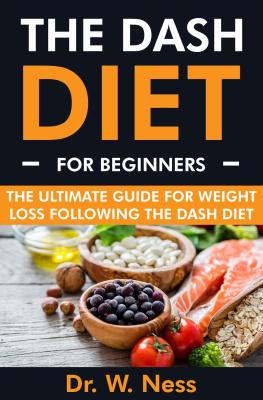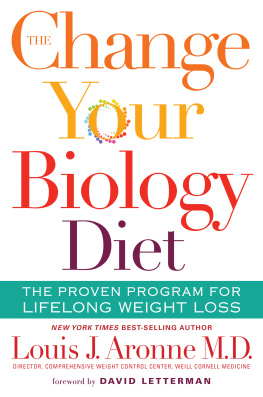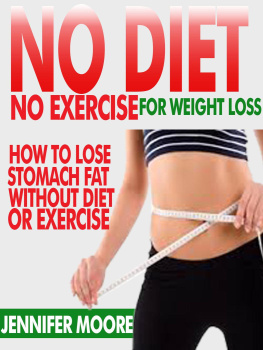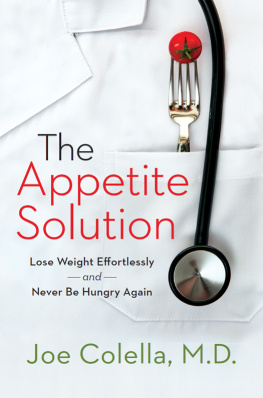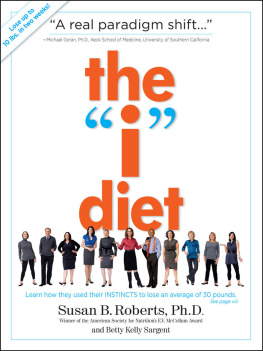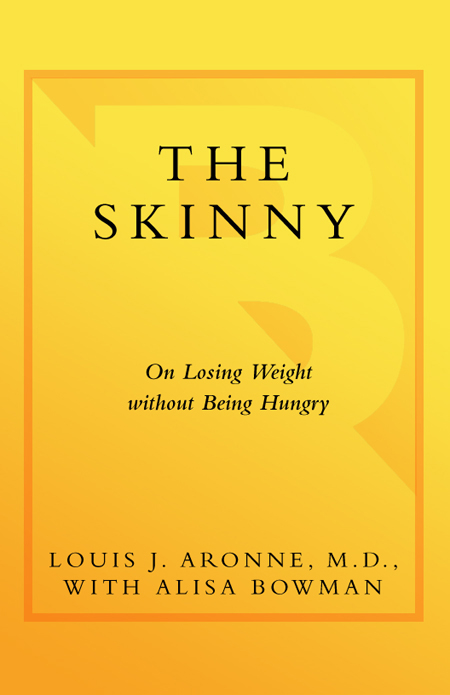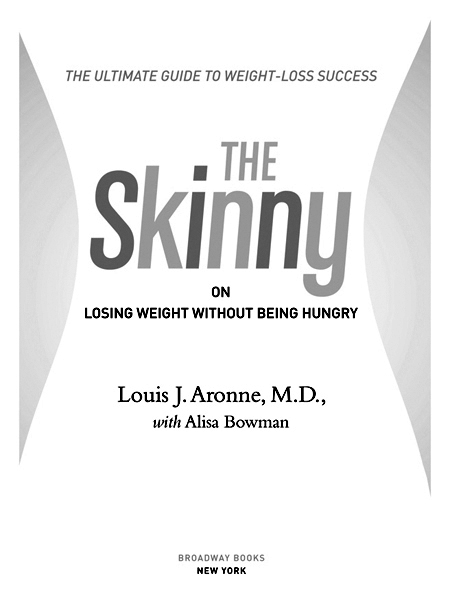Dr. Aronne has changed how I think about eating. Food no longer has the power it once did. I don't feel guilty about what I eat and what I don't eat. This has become a way of life.
Merri Lee Kingsly, who lost 50 pounds more than 2 years ago
Before Dr. Aronne, I walked around feeling like a failure when it came to my weight. I'd been on every diet imaginable, always regaining more than I lost. Now I understand that I didn't have a psychological problem. I had a metabolic problem. This program has been a miracle.
Angela McNamee, who lost 70 pounds 1 years ago
One of the big problems with most diets is that big people like me are used to eating a lot of food. Any diet that prescribes small amounts of food is just not going to work. Dr. Aronne's plan did not cut back on the amounts of food I ate, but rather changed the kinds of foods I ate. I was allowed to eat as much of certain types of foods as I wanted.
Ryan Elkins, who lost 175 pounds 1 years ago
Introduction
Y our friends may not believe that you are dedicated to losing weight. Your spouse may not believe you, either. Even your doctor may doubt your sincerity. Well, I believe you. I believe that you want to shed these extra pounds more than you've ever wanted anything, and I believe you are probably willing to do nearly anything to make it happen. In fact, I'd bet a million dollars that if a genie popped out of a little bottle this very moment and granted you just one wish, you would wish for the ability to lose weight.
I believe this because I know just how tremendously difficultif not impossibleit is to will yourself to eat less when your brain keeps telling you to eat more.
Why haven't you been able to shrink your portions, forgo dessert, or get yourself to the gym? Why, despite all of your good intentions, do you end up doing the opposite? Why is it that the more you eat, the hungrier you get? These are the very questions I've been studying and trying to answer for the past twenty-three years, ever since Claire came to me for treatment. She was in her late thirties, weighed 270 pounds, and had diabetes, high triglycerides (fat in the blood that tends to clog arteries), and low levels of the health-promoting HDL cholesterol. Her knees were so arthritic that she walked with a cane. I tried everything to help her lose weight, and she listened to my every suggestion. We tried, and we tried, and we tried. I studied medical journals. I talked with colleagues. I stayed up late each night thinking about her and why her weight would not budge. I never gave up on her. I didn't, because I knew one thing: there was no way Claire wanted to be that heavy and have those health problems. She wanted to lose weight. She wanted it more than anything. She was miserable in her 270-pound body.
I knew that Claire had to be battling strong biological signals that were driving her to eat. These hormonal signals were obliterating her sense of fullness. I couldn't prove it, but I knew it like I knew the world was round.
Claire's struggle led me, two years later, to develop and found the Comprehensive Weight Control Program at New York Presbyterian Hospital. It was one of the first research and treatment programs in the country devoted to helping people lose weight. My goal was simple: to treat people with weight problems in the same way that our cardiologists treated patients with heart disease. I didn't believe that people with weight problems had psychological or motivational problems. I believed they had a disease, one that could be treated.
To find the best ways to treat this disease, I performed and designed more than twenty-five weight-loss studies, and I consulted with other innovative researchers around the world. I counseled thousands of people, exhaustively working with them to find the most effective eating, behavioral, and lifestyle approaches for lasting weight loss.
I also did media interview after media interview, trying to spread what at the time was an incredibly unpopular message. I wanted people to know that weight loss is not about willpower. It's about biology. It's about figuring out why you rarely, if ever, feel full, and about implementing solutions that help you overcome that problem.
Through this research and clinical experience, I've earned a reputation as one of the world's foremost experts in my field. I'm one of the people whom the National Institutes of Health, the Veterans Administration, the American Heart Association, and many others have consulted when they need someone to explain the latest scientific understanding of appetite and metabolism. I'm also the guy folks at CBS News and many other news outlets repeatedly seek out when they want to find out which diets work and which don't. I do multiple television interviews, and countless more for radio and print, all because I want people to know that overeating just isn't their fault.
I'm also the guy to whom physicians from all over the country and world refer their toughest patients, the folks who seem destined for weight-loss surgery but who want to give eating less and moving more one final try. I see as many as eighty patients every week. They are men and women, celebrities and everyday Joes, adolescents and seniors, executives and clerks. They come from all over the world and are usually somewhere between 50 and 150 pounds overweight. I help many of them drop an average 15 to 20 percent of their initial weight. That's enough to significantly improve their health. That's also the amount of weight they might expect to lose if they opted for lap band surgery. I'm not as proud of the collective pounds they've lost, however, as I am of the sheer numbers of people I've helped, especially the ones, who, without my help, would have otherwise ended up going under the knife.
The New Skinny on Getting Skinny
When people come to me, they are frustrated. They've been continually trying to shed pounds, yet their weight keeps going up, up, and up. Nearly every day one of them tells me, I feel like I am losing my mind. They've been insulted and humiliated by well-meaning friends who try to motivate them with tough love. Their family and friends insinuate that they just are not trying hard enough. Their family doctors have read them the riot act, saying things like, Weight loss is important. If you don't get the weight off, you're going to have a heart attack.
As if they didn't think it was important. As if they were looking forward to having a heart attack. As if they enjoy being overweight in a world that prizes leanness.
During each initial consultation, I start with the question, Do you feel full when you eat? It startles patients so much that they often reply, No one has ever asked me that before. This response doesn't surprise me, in part because I've heard it so many times, but I wish it did. I wish it did because lack of fullness is what prevents so many people from losing weight and keeping it off.
I tell these patients, as I'm now telling you now, that weight loss isn't about priorities, willpower, or wanting it badly enough. Rather, it's about biology. It's about your body and your brain and your hormones. You struggle with your weight because your weight-regulating system is busted. An area of your brain should act as a fuel gauge much like the gas gauge in your car. Instead of measuring the amount of gas in your car, however, it measures the amount of fat and calories in your body. Sensors in your stomach, intestines, and fat cells and elsewhere are supposed to relay messages to your brain, indicating how many calories you've consumed or how much fat is stored in your fat cells. However, these messages aren't getting to your brain, so the needle on your fuel gauge doesn't move and your gauge often reads empty, even when your stomach is full of food and your fat cells are overflowing with stored calories. The result: you feel hungrier and hungrier, even as you are gaining weight.



